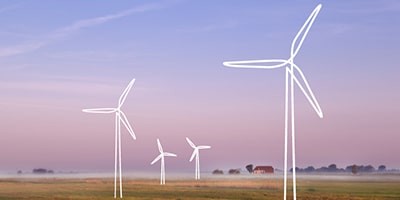DEV@60
|
|
Strong, Shared, Green: Development we can do together
2 days celebrating the Centre’s 6Oth anniversary24 October | High Level Meeting
|
|
|
People are hurting and worried, and many policy makers are struggling to respond. Just as we were emerging from an unprecedented global pandemic, Russia’s war on Ukraine shook the world once again. Food and energy prices are skyrocketing, poverty and hunger are rising fast, and governments are taking on even more debt. Every day, extreme weather events alert us to the growing climate crisis.
For many years, it seemed that the world was getting closer, that poorer countries were catching up with rich ones and that we had shared global goals. Today, it can feel like we are drifting further apart. Inequality is growing, both within and between countries, and the world’s most vulnerable communities are being hit hard. We have fallen off track on the path to gender equality.
It is not too late to turn this around. Policy makers are finding ways to make their economies stronger, more shared and greener. Partners in academia, advocacy and business have innovative solutions to share. Citizens everywhere want more action on sustainable development and global solidarity.
The OECD Development Centre is here to help seize these opportunities. On 24 October 2022, decision makers from our 53 member countries came together for the 8th High-Level Meeting of our Governing Board. They shared ideas and learnt from one another, met with renowned experts and discussed policy priorities for the international community.
They came together in the knowledge that we are all connected. They know that no matter where we live, our well-being, stability and prosperity is at stake. They know that the only way to address our global problems is together.
This knowledge has underpinned the Centre’s work ever since John F. Kennedy suggested its creation 60 years ago. Today, the Centre is a place where countries meet on equal footing to address, the world’s most pressing challenges. It is where they can find, policy advice that is based on evidence, independent and tailored to their needs.
On 25 October, our member countries and a number of eminent personalities gathered for a high-level public discussion to celebrate the Centre’s 60th Anniversary. Together, they took stock of where development stands today and what it could look like tomorrow.
|
Watch the full event |
Main events
-
Day 2 [closed door]
-
8th High-Level Meeting (HLM) of the Governing Board
- 24 October 2022
- See agenda
- See the Key Issues Paper
- See the Policy Statement on Future Perspectives
-
-
Day 3 [public]
-
Celebrating the Development Centre’s 60th Anniversary
- 25 October 2022
- See agenda
-
DEV Talks
-
Building a more resilient world in a multi-crisis era
- 29 September - 3pm CET
- From climate change - to COVID-19 - to Russia’s war against Ukraine, the world is weathering a series of multiple, cascading crises. How to strengthen the resilience of countries, and better prepare the international response to “perfect storms”?
- Watch the video of the panel
-
Equal rights under attack around the world
- 11 October - 3pm CET
- While great progress has been made on the road to gender equality, in just a few short years, the pandemic has set us back by more than a generation. How do we address this and avoid further setbacks?
- Watch the video of the panel
-
Energy access or low-carbon transition: do we need to choose?
- 20 October - 3pm CET
- How can developing countries simultaneously participate in the global energy transition towards net-zero and extend energy electricity access to hundreds of millions of their citizens? Will they be forced to choose between the two?
- Watch the video of the panel
Impact stories

-
Leaving no one behind
- “Informal” workers make up 60% of the global workforce. The OECD Development Centre recognised this challenge early on.
- Read more
-

-
Building a Gender-Equal World
- Policy makers often lack the data and evidence to understand inequality. This is where the SIGI comes in.
- Read more
-

-
Getting the Green Transition Right
- For the world to reach net-zero, fossil fuel producing developing countries will have to play their part. But they need support.
- Read more
-
Six decades
of the OECD Development Centre
|
Looking forwardRecommendations of the Group of Eminent Personalities (GEP)The 8th High Level Meeting of the Development Centre’s Governing Board (24 & 25 October 2022) was an opportunity for high-level representatives, government officials, and other stakeholders to reflect on key global challenges, scan the horizon for emerging trends, and devise a long-term vision for the Centre. In that context, the Chair of the Governing Board proposed to establish a Group of Eminent Personalities to share their wisdom on how the Centre could best respond to those challenges and support the OECD in its mission to be globally relevant, in line with its Global Relations Strategy and Vision Statement. |
